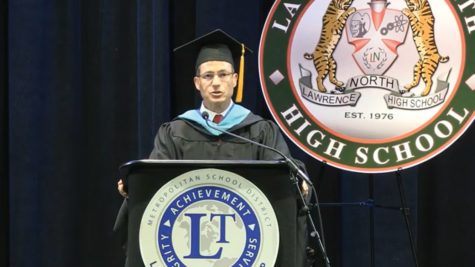The right to a fair trial
As the impeachment trial progresses, questions are raised on whether or not it is constitutional
“Democracy dies in Darkness” has been the slogan for the Washington Post for about three years now. On Friday, Jan. 31, our democracy died in darkness.
On that Friday, Jan. 31, the senate decided 51 to 49 to not see witnesses in a trial of impeachment of President Donald Trump, after about two weeks of debate in between the house impeachment managers and the president’s lawyers. This was the second round of votes to introduce witnesses, this time with the democrat’s wanting to hear from John Bolton, the former National Security Adviser.
One of the pillars of American democracy is the right to a fair trial, which generally means that witnesses and a fair and impartial jury are used. The senators in the House voted against seeing any witnesses for the trial, something that is very rare in our democracy. As representative Jerry Nadler said in his closing speech before the vote “A trial, as any 10-year-old knows has witnesses, and we are told that we cannot have witnesses. Because after all, the house says that we proved our case, as we have, so why should we have witnesses. Well, that’s like saying in a bank robbery, the DA says that he’s proved his case. He’s had all his witnesses and then an eyewitness shows up and he shouldn’t be allowed to testify because after all, the DA was sure that he proved his case.
This is the third time in our country’s history that a president has been formally impeached. The first case, against Andrew Johnson in 1868, took 11 weeks just in the Senate, where they examined lots of evidence and key eyewitnesses, whereas the trial against President Trump was denied all witnesses and lasted less than a month. According to a poll done by ABC News and the Washington Post, 66% of Americans wanted the Senate to see more witnesses, while they were divided evenly on whether or not the president should actually be removed. Regardless of whether or not you think the president should be removed from office, having a fair trial is vital to keeping the integrity of our democracy.
Impeachment is the power given to Congress in the Constitution, which grants the House of Representatives the ability to investigate whether or not a president commits “Treason, Bribery, or other high Crimes and Misdemeanors.” Then the Senate is tasked with the duty to judge whether or not the president should be removed from office due to the charges brought by the Senate. A simple majority is needed to pass impeachment from the House to the Senate, and a two-thirds majority to convict the president and remove him from office in the Senate.
The power of impeachment is more than just the ability to remove the president if Congress does not approve of him or her. Impeachment is one of the many checks and balances set in place by our Founding Fathers, so that the three branches of government make sure that none becomes too powerful, corrupt, or violate the law. This specific power is very important in making sure that the sitting president stays in line, which makes the legitimacy of the process that much more important. As Representative Jerrold Nadler was quoted, “Impeachment is not punishment for a crime. Impeachment exists to address threats to the political system.”
The argument made by senators that the trial and investigation are a waste of time is used only to delegitimize the process.
Some senators such as Martha McSally argue that the job of impeachment inquiry was not done well enough by those in the House, being quoted that “A dangerous precedent will be set if we condone a rushed, partisan House impeachment with no due process that shuts down the Senate for weeks or months to do the House’s work.” This basic argument goes against what has happened historically, when the trials for Clinton and Johnson lasted much longer bringing in multiple witnesses.
When senators voted to not see witnesses in a major national trial, they undermined the very values and pillars that we have fought to maintain in this country. Regardless of whether or not you think that the president should be removed from office, the simple right to hear witnesses should be automatic.
The very partisan handling of impeachment has set a dangerous precedent of what the president, or any other public official, can do while in office. One thing that we have learned this past month is that the president cannot be held responsible for anything while his or her party is in power.










